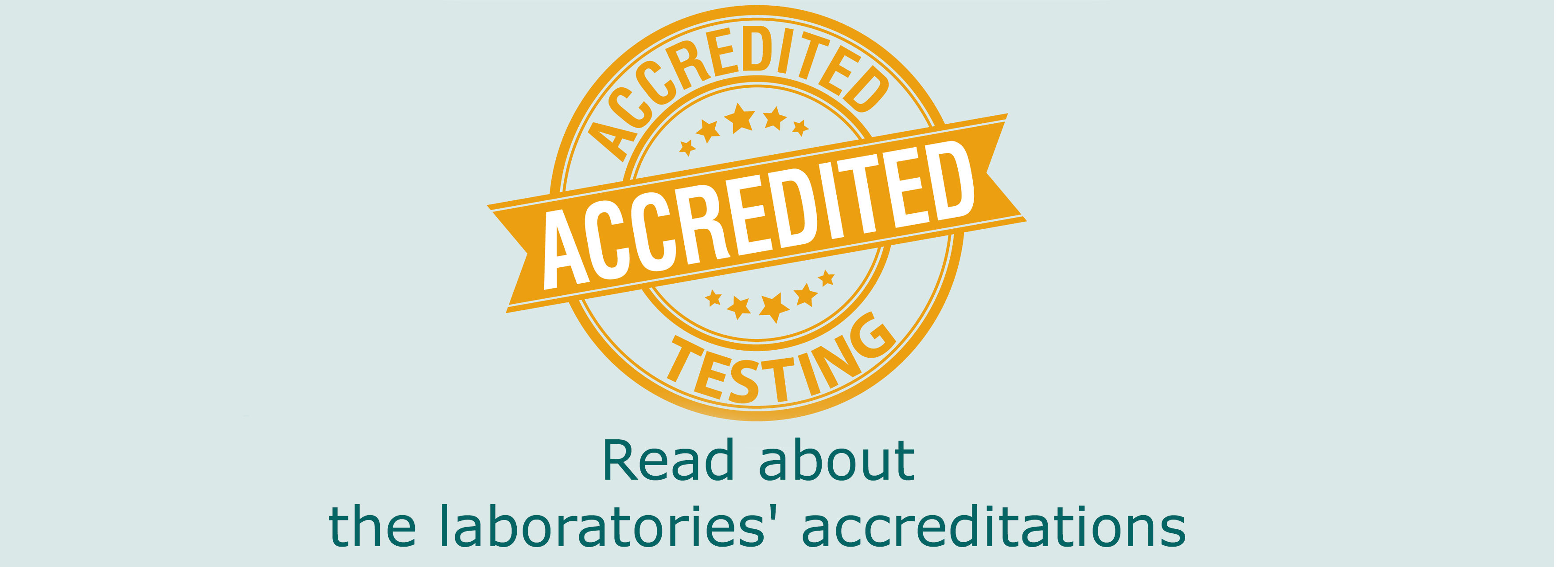Prenatal Screening for
Chromosomal Abnormalities
Price: €395
Testing: Expectant mother
Time frame: 10 to 14 working days from receipt of samples at the laboratory
This prenatal screening test is your best option for a variety of reasons. Unlike invasive diagnostic tests such as Amniocentesis and Chorionic villus sampling (CVS) which involve risks such as miscarriage, leakage of the amniotic fluid or damage to the baby’s limbs, this test is 100% safe! It does not pose any risks to the mother or the unborn baby since it is non-invasive and only requires a 10ml maternal blood sample. Using whole genome sequencing technology and four different proprietary bioinformatics analysis pipelines, this test is able to offer an unbeatable accuracy rate of 99% or more. Apart from being the most accurate test on the market, it is also considered as the most trusted with over 1 million tests performed worldwide to date. Please also note that gender determination is also available upon request at no extra charge! Should you be interested in this service, please make sure to select the respective option when ordering the test.
This test screens for the following Conditions:

A trisomy is a type of aneuploidy (an abnormal number of chromosomes) in which there are 3 chromosomes instead of the normal 2.
| Trisomy 9 | Patau Syndrome (Trisomy 13) | Trisomy 16 |
| Edward’s syndrome (Trisomy 18) | Down Syndrome (Trisomy 21) | Trisomy 22 |
The following abnormalities and disorders are also tested for no additional cost!

A sex chromosome aneuploidy is a numeric abnormality of an X or Y chromosome, with the addition or loss of an entire X or Y chromosome.
The following abnormalities and disorders are also tested for no additional cost!
| Turner’s syndrome (XO) | Triple X (XXX) |
| Klinefelter’s syndrome (XXY) | Jacob Syndrome (XYY) |

Deletion syndromes are a group of clinically recognisable disorders caused by the deletion of a small chromosomal segment.
The following abnormalities and disorders are also tested for no additional cost!
| 1p36 microdeletion Syndrome | Van der Woude Syndrome I (VWS) | 12q14 microdeletion Syndrome |
| Feingold Syndrome IS | Split-Hand/Foot Malformation type 5 (SHFM5) | Glass Syndrome |
| Holoprosencephaly type 6 (HPE6) | Microphthalmia type 6 Syndrome, pituitary hypoplasia | Rieger Syndrome type 1 (RIEG1) |
| Cri du Chat (5p deletion) Syndrome | Cornelia de Lange Syndrome I (CDLS) | Alpha Thalassemia |
| Mental Retardation Syndrome | SIM1 | Saethre-Chotzen Syndrome (SCS) |
| 8p23.1 duplication Syndrome | 8p23.1 deletion Syndrome | Trichorhinophalangeal type I Syndrome |
| Branchlootorenal dysplasia Syndrome I (BOR)/Melnick-Frazer Syndrome | Distal Arthrogryposis type 2B (DA2B) | Langer-Giedion Syndrome (LGS) |
| Monosomy 9p Syndrome | 2 DiGeorge type 2 Syndrome (DGS2) | Split-hand/foot malformation type 3 (SHFM3) |
| Chromosome 10q22.3-q23.31 microdeletion Syndrome | Bannayan-Riley-Ruvalcaba Syndrome (BRRS) | Cowden Syndrome (CD) |
| Chromosome 10q deletion Syndrome | Androgen insensitivity Syndrome (AIS) | Wilms tumor 1 (WT1) |
| 11q11-q13.3 duplication Syndrome | Jacobsen Syndrome | 1q41-q42 microdeletion Syndrome |
| 14q11-q22 deletion Syndrome | Dandy-Walker Syndrome (DWS) | Angelman Syndrome/Prader-Willi Syndrome |
| Deafness-infertility Syndrome | 15q26 overgrowth Syndrome | Diaphragmatic hernia, congenital (HCD/DIH1) |
| 5q21.1-q31.2 deletion Syndrome | 16p11.2-p12.2 microdeletion Syndrome | 16p11.2-p12.2 microduplication Syndrome |
| Potocki-Lupski Syndrome (17p11.2 duplication Syndrome) | Smith-Magenis Syndrome | 17q21.31 deletion Syndrome |
| 17q21.31 duplication Syndrome | Holoprosencephaly type 4 (HPE4) | Chromosome 18p deletion Syndrome |
| Duchenne/Becker mascular dystrophy (DMD/BMD) | Chromosome 18q deletion Syndrome | Holoprosencephaly type 1 (HPE1) |
| Cat-eye Syndrome (CES) | Microphthalmia with linear skin defects | Orofaciodigital Syndrome |
| Dyggve-Melchior-Clausen Syndrome (DMC) | Xp11.22-p11.23 microduplication Syndrome | Aniridia II & WAGR Syndrome |
| Leukodystrophy with 11q14.2-q14.3 | X-linked lymphoproliferative Syndrome (XLP) | 0 Mental retardation X-linked growth horm. Def (MRGH) |
How does the Prenatal Screening test work?** Note that this test has been upgraded, now covers 52 additional microdeletion and duplication syndromes (previously only covered 8)
Even though this prenatal DNA screening test is the most advanced test of its type on the market, it only requires a small maternal blood sample of 10ml which needs to be collected via a standard blood draw by a trained professional. Please note that the only additional cost involved is the fee for the medical blood draw (please read our terms and conditions for any other charges).
But how does it actually work? Once your kit (containing the sample and required documentation) is received at the laboratory, scientists analyse cell-free foetal DNA from the maternal blood sample to confirm or exclude each of the above-listed chromosomal abnormalities. Through the use of whole genome sequencing technology and four different proprietary bioinformatics analysis pipelines, scientists are able to accurately determine the presence of these genetic abnormalities. For example, scientists can determine that the expectant mother is carrying a baby with Down’s syndrome since the ratio of genetic material associated with chromosome 21 will be higher due to the extra, third copy of that chromosome. For complete peace of mind order this advanced screening test today, starting from only €395!
Important note: Even though this test is considered as the most accurate screening test available for Trisomy 21, other Trisomies and specific chromosomal disorders, it is important to note that it still remains a screening test and not a diagnostic test, and that it does not screen for all chromosomal conditions. Please also note that this test cannot replace diagnostic tests such as Amniocentesis and Chorionic villus sampling but it can help expectant mothers avoid the need to undergo these invasive tests.




